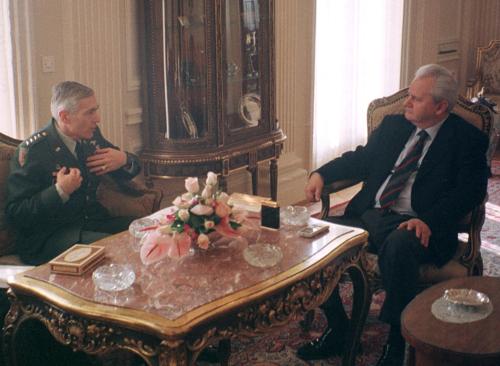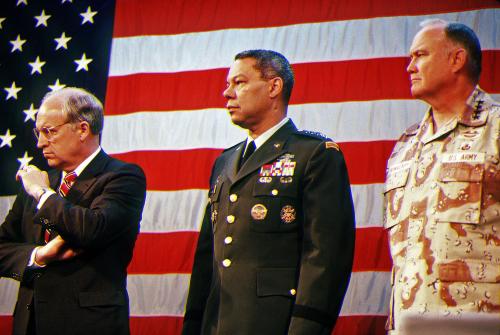

10:00 am EDT - 11:30 am EDT
Past Event
10:00 am - 11:30 am EDT
1775 Massachusetts Avenue N.W.
Washington, DC
20036
Militia groups have become an increasing feature of the Middle East and North Africa (MENA). Often sponsored by rival outside powers, they have profound impact on local stability, internal politics, humanitarian access, and economic development, as well as on regional security and geopolitics. In Iraq, such paramilitary groups have mobilized and, in some cases, remobilized to counter the Islamic State (IS). Yet, even after territorial control was wrestled away from IS, the political and economic power of Al Hashd al-Shaabi, as the paramilitary groups are known in Arabic, has continued to grow. During the spring of 2019 tension between the United States and Iran, Iraq’s paramilitary groups became a key flashpoint. In Lebanon, Hezbollah, too, has been at the epicenter of regional rivalries and counterterrorism. And in Libya, infighting among the country’s militias has plunged the country into another phase of civil war.
On June 28, the Brookings Institution hosted a panel conversation on the impact of militias in MENA and ways to address the paramilitary groups with Brookings Senior Fellows Shadi Hamid and Vanda Felbab-Brown; Richard E. Behrman Professor of Child Health and Society at Stanford University Paul Wise; Brookings John C. Whitehead Visiting Fellow in International Diplomacy Jeffrey Feltman; and Senior Fellow Suzanne Maloney, who moderated the event.
After the introductory comments, panelists answered questions from the audience.
Panelist




Melanie W. Sisson
June 15, 2022

Bruce Riedel
October 18, 2021
2021
Online Only
10:00 am - 11:30 am EDT